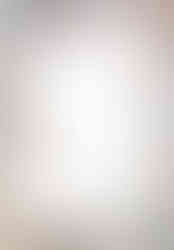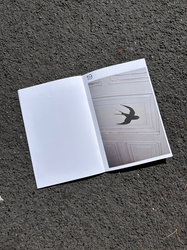
The beach in Abu Dhabi often has an artificial soundscape, leading me to wonder about its source. There's a continuous background noise from construction that persists from day to night. Despite the urban environment being new and pristine, like an untouched ice cream, the noise can be irritating.
The days I spent by the pool and the beach at the hotels, visiting my parents who work there, were wonderful despite the noise. Mornings were the best time for a swim. Reflecting on my childhood in Libya, North Africa, where swimming involved heavy, wet fabric clothing, I thought about how cool the "Burkini" is. Unlike the cumbersome cotton fabrics, the Burkini is lightweight and designed for swimming, which I, as an avid swimmer, really appreciate.
Motivated to learn more about the people wearing Burkinis, I engaged in small talks and asked for portraits to focus on the swimwear. This led to a series of conversations that inspired my work. The title "Paper Cup, Plastic Cup" came to me during a nap, after struggling to find a fitting headline. These two elements, found in images within the book, ultimately made sense.

"The Universal Landscapes" is a collaborative duo project and was carried out as part of the Haus am Kleistpark Photography Prize. The project focuses on dimensions of reality and its reproduction and is an investigation of the relationship between language, translation and documentary image. The installation presents various occasions through which different elements of each situation are reflected through each other, creating a dialogue between objects and images.
The "Artificial Animals" photo series delves into the concept of artificiality by showcasing images of man-made animals. These animals, while imitating their natural counterparts, highlight the distinction between what is naturally occurring and what is human-made. The series examines the aesthetics, functions, and implications of these artificial beings, questioning the boundaries between nature and human creation.
The series is curated in the form of a photo booklet, which allows for a structured and intimate viewing experience.
"Sorry, I Fucked This Up" is a compelling collection of Polaroids, capturing moments from Berlin, Hamburg, and Ikaria between 2013 and 2020. The series presents a raw and intimate glimpse into everyday situations, featuring portraits of classmates, friends, and various encounters.
The title and cover of the collection are inspired by a Polaroid labeled with the phrase "Sorry, I fucked this up." This theme of imperfection runs throughout the series. By significantly enlarging the images and deliberately omitting the classic white Polaroid frame, the rawness and immediacy of the photos are enhanced. Common errors in instant photography, such as burnt-out spots, red-eye effects, underexposure, overexposure, and blurring, are not only retained but intensified. This approach highlights the beauty in imperfections, making the images feel closer and more relatable.
BOW, Kontext-Übungsroutine: HomophoneDies sind tägliche Übungen zur Verbesserung der Rechtschreibung und zum Üben im Kontext. Die korrekte Verwendung der einzelnen Homophone, um ihre unterschiedlichen Bedeutungen und Schreibweisen im Zusammenhang mit dem visuellen Lesen zu verstehen. Ein paar Minuten lang die Natur beobachten, zum Beispiel, wie sich die Blätter eines Baumes im Wind bewegen. Dies dient dazu, mein Selbstvertrauen durch Rechtschreibübungen auf Wortsuche mit einem achtsamen Ansatz zu stärken. Vor allem Homophone wie "Bow und "Ball", auf Polaroids und Homophone Rechtschreibung reflektieren, als Flashcard Praxis. Das Lesen von Texten kann durch die Schriftart überwältigend sein. In diesem Fall ist die Textdarstellung überlappend und es sieht so aus, als ob das Polaroidbild über den Buchstaben liegt. Ein visuell ansprechendes Layout, bei dem der Text im Vordergrund steht, das Bild aber dennoch eine wichtige Rolle im Hintergrund spielt.











